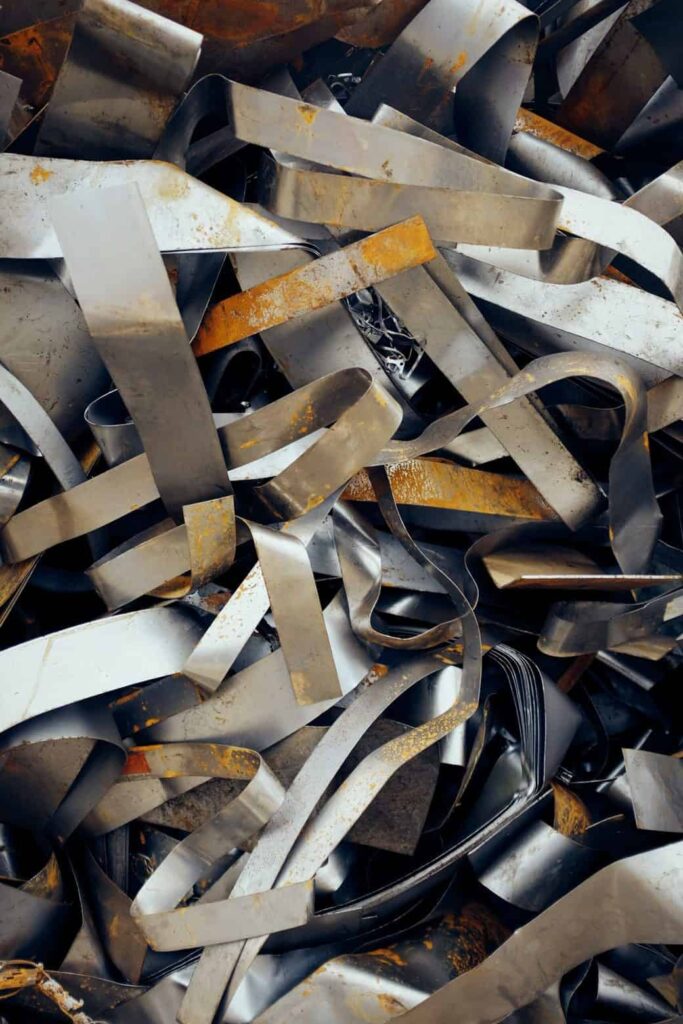Aluminum Scrap Price as of 4/14/2021: $0.42/lb
Yes! Langley Recycling is currently accepting all types of aluminum and aluminum cans.
Bring in your aluminum today and get paid.
(*Note: Quoted prices are subject to change at any time. Scrap prices can change on a daily basis so feel free to call ahead if you have any questions)
Langley Recycling pays top dollar for your scrap aluminum. If you’re not sure if the scrap you have is aluminum, you can give us a call or email a picture and we’ll help you sort it out. We can also sort through your scrap onsite and make sure you’re getting the most money possible.
Common sources of aluminum scrap include aluminum cans, aluminum rims from trucks and cars, old bicycles, wiring (hint: aluminum is the non-magnetic wiring – unlike copper), aluminum pots and pans, metal lawn chairs, window frames, gutters and some siding.
Our Simple Aluminum Scrap Recycling Process
Bring In Your Scrap
Take your scrap to our clean, easily accessible facility.
Get Weighed
Our team will review and weight your scrap materials
Get Paid
Get paid right away in cash, Bitcoin, Venmo or any other method you prefer.
Not sure where to bring your scrap aluminum in Kansas City?
Getting the best price for your aluminum scrap metal is probably your primary concern, but it shouldn’t be your only one. When you come to Langley Recycling, our team will make sure you are treating fairly and keep the aluminum recycling process as quick and easy as possible – all while reducing unnecessary waste and helping keep our environment healthy.
And don’t stop at just bringing us your aluminum. We also accept a wide variety of other scrap materials, including copper, brass, cast-iron, steel and more. We also accept junk cars, batteries, catalytic converters and a wide variety of other materials.

F.A.Q.
Yes, aluminum is 100% recyclable. It’s also able to keep its properties forever.
According to experts, aluminum is infinitely recyclable. This means that it can be melted down, re-shaped and re-developed an endless amount of times. When you consider the fact that creating new aluminum uses significantly more energy than using a recycled version, it really hits home how much more efficient it is to recycle metal.
Out of all materials that can be recycled, aluminum is the most valuable and recyclable. However, despite over 75% of all Aluminum that’s ever been produced being still in use today, over $700 million of aluminum cans are still thrown away every single year. And did you know that one aluminum can can save enough energy to play an entire album on a digital device such as an iPod? That’s how valuable it is!
Yes, Aluminum is easy to recycle.
From your point of view, if you have household Aluminum items that need recycling (for example, any of the items listed above), all you need to do is find a specialist facility that recycles scrap metal such as Langley Recycling.
When we receive the item (let’s say it’s an aluminum refrigerator), the recycling process is very straight-forward for our team. We specialize in recycling both ferrous and non-ferrous metal. All you’ll need to do is bring your items to us, we’ll pay you and take care of everything else. How’s that for reducing your carbon footprint?
About 65% of aluminum is recycled in the US, that’s over 123,000 aluminum cans recycled per minute!
In 2018, it was found that the most recycled Aluminum product (in the containers and packaging category) was beer and soft drink cans. In 2019, 42.7 billion cans were recycled.
From your point of view, if you have household Aluminum items that need recycling (for example, any of the items listed above), all you need to do is find a specialist facility that recycles scrap metal such as Langley Recycling.
When we receive the item (let’s say it’s an aluminum refrigerator), the recycling process is very straight-forward for our team. We specialize in recycling both ferrous and non-ferrous metal. All you’ll need to do is bring your items to us, we’ll pay you and take care of everything else. How’s that for reducing your carbon footprint?
If aluminum is taken to landfill instead of being recycled, it will contribute to greenhouse gas production. It will pollute the soil, air and also nearby waterways. This will then release harmful gases into the air and increase the risk of global warming.



